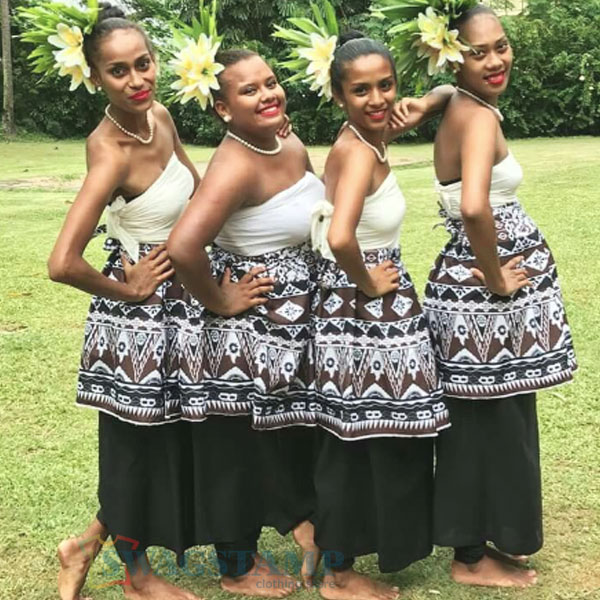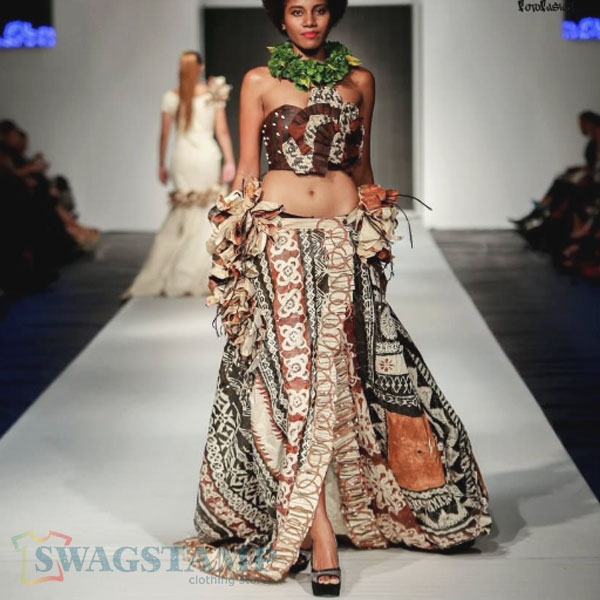Blog
Discover Authentic Fiji Clothing – Shop Now!
Fiji Clothing is a unique clothing style that has been embraced by many, and for good reason. The vibrant colors, flowy dresses, and comfortable fabrics make Fiji Clothing a wonderful addition to any wardrobe, but there’s more to it than just that.
Have you ever struggled to find clothing that’s comfortable yet stylish? Do you find yourself disappointed with the quality of the clothes you purchase time and time again? These are common pain points for many individuals, which is where Fiji Clothing comes in. Fiji Clothing provides high-quality, comfortable clothing that’s designed to make you feel great while looking amazing.
The target audience for Fiji Clothing tends to be those seeking comfortable yet fashionable clothing options. Whether you’re looking for something to wear to work, to a wedding, or just to lounge around the house in, Fiji Clothing has you covered. Their versatile styles and sizes ensure that anyone can find something they love.
In summary, if you’re looking for comfortable yet stylish clothing that’s perfect for any occasion, Fiji Clothing is the way to go. Say goodbye to uncomfortable, poorly made clothing and hello to quality, comfortable pieces that are perfect for everyday wear or special events.
“Fiji Clothing” ~ bbaz
Fiji Clothing: The Essence of the South Pacific
Fiji is known for its stunning natural beauty and diverse mix of cultures. Its clothing reflects this rich tapestry, blending traditional island attire with contemporary styles. Whether you’re strolling through the streets of Suva or soaking up the sun on a secluded beach, Fiji clothing offers something unique for everyone.
The History of Fiji Clothing
Fiji’s cultural heritage dates back centuries, and its clothing traditions are no exception. Authentic Fijian clothing options include sulus, which are wrap-around skirts that come in vibrant colors and patterns, and Bula shirts, colorful loose-fitting shirts adorned with indigenous designs. Worn by both men and women, these traditional garments have been updated for modern-day wear.
Fiji Clothing for Women
When it comes to women’s fashion, Fiji’s blend of traditional and contemporary-style options make it easy to find something that suits your taste. From flowing sundresses to tailored tops and skirts, the wide range of options ensures that each piece celebrates the natural beauty of Fiji.
Fiji Clothing for Men
Men’s fashion in Fiji is all about bold island-inspired prints and bright, energetic colors that reflect the country’s sunny climate. The signature Bula shirt features a comfortable loose fit, making it ideal for hot summer days.
Contemporary Fashion in Fiji
Fiji’s contemporary fashion scene draws inspiration from the country’s diverse cultural influences, resulting in a mix of both global and local trends. Many designers are also incorporating eco-friendly practices into their manufacturing processes, making their clothes both stylish and sustainable.
Fiji Clothing for Special Occasions
With its variety of high-quality fabrics and intricate designs, Fiji clothing is a popular choice for special occasions. From weddings to cultural celebrations, Fijian attire is often used to add a touch of elegance and authenticity to these events.
Shopping for Fiji Clothing
Fiji is home to many unique shops and boutiques that specialize in local clothing and accessories. These shops offer a range of options, from traditional island pieces to modern designs, so it’s easy to find something that suits your style.
Caring for Your Fiji Clothing
Fiji clothing is often made from natural materials like cotton and silk, so it’s important to take extra care when cleaning and storing your garments. Always check the care instructions on the label before washing, and avoid using harsh detergents or fabric softeners that can damage the fabric.
In Conclusion: The Versatility of Fiji Clothing
From traditional island wear to contemporary global designs, Fiji clothing offers something for everyone. Whether you’re looking for something casual for everyday wear or something special for a special occasion, Fiji’s unique blend of cultures and styles ensure that you’ll find something perfect for you.
Discover Authentic Fiji Clothing – Shop Now!
Fiji Clothing: A Glimpse into the Rich Culture
Fiji is known for its beautiful beaches, crystal clear waters, and stunning landscapes. However, in addition to these natural wonders, Fiji is also home to a rich culture, and fashion plays a crucial role in it. Fiji clothing is a combination of traditional and modern designs that reflect the country’s diverse heritage. From intricate patterns to bold colors, Fiji clothing is a visual representation of the country’s history and culture.

Target of Fiji Clothing
Fiji clothing is not just about dressing up or looking good; it’s a way of expressing one’s identity and has significant cultural and spiritual meanings. For Fijians, clothing plays a prominent role in various aspects of life, such as weddings, funerals, or other significant social events. Wearing traditional Fijian clothing symbolizes pride in one’s heritage and pays homage to ancestors.My experience wearing traditional Fijian clothing was unforgettable. I had the opportunity to attend a traditional Fijian wedding where we were asked to dress in Fijian attire. It was an incredible experience to dress up in a sulu and a Bula shirt, and I felt proud to represent Fijian culture.In conclusion, Fiji clothing is an essential aspect of Fijian culture that represents the country’s rich heritage. Whether it’s for a wedding, funeral, or any other significant event, Fijians take pride in their traditional attire. From bright colors to intricate patterns, Fiji clothing tells a story that is captivating, and wearing it provides a source of pride and identity.
Question: What is Fiji Clothing?
Answer: Fiji Clothing refers to the traditional clothing worn by the Fijian people. It includes a variety of garments such as loincloths, sarongs, skirts, and dresses made from natural materials such as bark cloth, pandanus, and coconut fibers.
Question: What are the characteristics of Fiji Clothing?
Answer: Fiji Clothing is known for its vibrant colors, intricate designs, and use of natural materials. The garments are often decorated with patterns that represent local flora and fauna, and they are designed to be comfortable and practical in the tropical climate of Fiji.
Question: What occasions are Fiji Clothing worn for?
Answer: Fiji Clothing is worn for a variety of occasions, including weddings, festivals, and formal events. It is also worn on a daily basis by many Fijians as a way to connect with their cultural heritage and express their identity.
Question: Where can I buy Fiji Clothing?
Answer: Fiji Clothing can be purchased in local markets and shops throughout Fiji. There are also online retailers that specialize in selling traditional Fijian clothing and accessories.
Conclusion of Fiji Clothing
Fiji Clothing is an important part of Fijian culture and identity. It is known for its vibrant colors, intricate designs, and use of natural materials. Whether worn for special occasions or on a daily basis, Fiji Clothing is a way for Fijians to connect with their heritage and express their unique identity. If you’re interested in purchasing Fiji Clothing, there are many local markets and online retailers that offer a variety of traditional garments and accessories to suit your style and needs.
Fiji Clothing: A Blend of Tradition and Style
Fiji clothing is a unique fusion of traditional Fijian style and modern fashion. Fiji’s rich cultural heritage heavily influences the designs, colors, and materials used in creating these clothes. They are known for their vibrant colors, intricate patterns, and comfortable fabrics.The traditional Fijian attire is known as the ‘sulu’ or ‘sulu va taga.’ It is worn by both men and women and consists of a long wraparound skirt made from cotton or silk material. The sulu is usually paired with a matching top and a lei (garland) around the neck. The colors and patterns of the sulu vary according to the occasion and the wearer’s status in society.Fiji clothing has evolved over time, reflecting the changing trends and preferences of the people. Today, Fijian designers create a range of modern clothing inspired by traditional designs. These include dresses, shirts, shorts, and skirts made from natural fibers and adorned with traditional motifs. Fiji clothing is popular among tourists and locals alike and is often worn during special occasions such as weddings, festivals, and cultural events.

The Target of Fiji Clothing
As someone who has lived in Fiji for most of my life, I can attest to the popularity of Fiji clothing. It is not just a fashion statement; it is an expression of our cultural identity. Fiji clothing represents our values, beliefs, and traditions. It is a way of honoring our ancestors and preserving our heritage.Fiji clothing is accessible to everyone, regardless of age, gender, or social status. It is affordable, comfortable, and versatile, making it suitable for everyday wear. Whether you are attending a formal event or going to the beach, there is a Fiji clothing style that will suit your needs.In conclusion, Fiji clothing is a unique blend of tradition and style that reflects the rich cultural heritage of Fiji. It is an expression of our identity and a way of preserving our heritage. Whether you are a local or a tourist, Fiji clothing is a must-have in your wardrobe.Remember to support local Fijian designers and purchase authentic Fiji clothing that is ethically made and sourced. By doing so, you are not only contributing to the local economy but also helping to preserve our cultural heritage for future generations.

